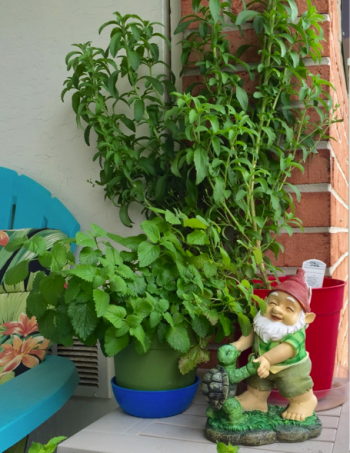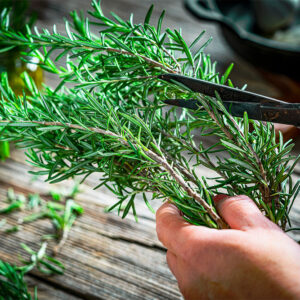
How to Naturally Beat Anxiety
Your hands are shaking. Your heart is pounding, and it feels like an elephant is on your chest. A cold sweat breaks across your forehead, your arms and hands start to tingle, and you feel an overwhelming sense of impending doom.
Your first thought is that you are having a heart attack.
But you go to the doctor and everything checks out. Your heart is strong.
The doctor tells you: “It was probably just an anxiety attack. Have you been stressed lately?”
Just an anxiety attack?! Anything that mimics a heart attack deserves a bit more consideration of its seriousness. True, it’s not going to kill you. But if you feel like you’re going to die, you aren’t exactly thriving.
I am no stranger to anxiety, having battled it my whole life. I have first-hand experience with the classic “I think I’m having a heart attack” type of panic attack.
So when one reader wrote in asking for some natural ways to treat anxiety, I knew it was time to unleash the arsenal of things I’ve tried.
The very first place to start, as with any health condition, is with diet. What you eat will have a direct effect on your mood, and the importance of the gut-brain axis is rapidly becoming known. In fact, studies are showing that eating certain foods can actually help prevent anxiety. And some other foods are thought to increase it. However, there’s a lot to cover on that topic, so I’m saving it for next week. For now, I want to give you some natural solutions that can help you today.
I always like to start with herbs. They are gentle yet powerful and not likely to produce major side effects.
One of the most dramatic herbs I’ve personally experienced in rapidly reducing anxiety is passionflower (Passiflora incarnata). Twenty drops of a liquid extract in an ounce of water will produce a gentle wave of calm pretty quickly. (I like the Herb Pharm brand of liquid extracts.)
Scientists believe it works by affecting the GABA system in the brain. GABA is a “calming” neurotransmitter, and lack of GABA is believed to play a role in anxiety disorder. GABA inhibits nerve transmission in the brain, which helps calm nervous activity. By upregulating GABA, passionflower helps promote a sense of peace and calm. (1)
A 2009 Cochrane review found that passionflower was similar in effectiveness to benzodiazepines for helping reduce anxiety but didn’t produce as many side effects. (2) It’s also been found to help reduce anxiety in people about to undergo major surgery. (3)
Lemon balm (Melissa officinalis) is another amazing herb that works by upregulating GABA. Three different studies have found that 300-600 mgs of lemon balm extract can induce calmness and relaxation. (4) (5) (6)
Lemon balm is also super easy to grow. You can then make your own tinctures or lemon balm tea. It’s a member of the mint family, and if you’ve ever grown mint, you know how hardy it is and how it thrives with the most minimal attention.
I’m growing lemon balm on my balcony this year and eat it raw after work to help me unwind. I just pluck a few leaves, wrap them in a stevia leaf for some sweetness, and eat it straight.
 Lemon balm (front), stevia (back), and an anxiety-free gnome.
Lemon balm (front), stevia (back), and an anxiety-free gnome.
As far as side effects go, both passionflower and lemon balm may induce drowsiness. For that reason, they are great options if you suffer from insomnia, especially if it’s because you find you can’t get your brain to “shut up” at bedtime.
Other herbs that I’ve tried and recommend include chamomile tea, hops, California poppy and holy basil (also known as Tulsi). Bach’s flower essences are a homeopathic remedy for stress and anxiety. It isn’t very strong, but is helpful if you’re just feeling stressed out.
Kava kava is another strong herb that’s effective for anxiety. However, it has been associated with a few cases of liver damage, so it’s best used under supervision.
Anxiety attacks can be debilitating, but know that they can be overcome. First, recognize you are not dying. Get up and take one of the natural remedies I’ve mentioned, and then go for a 20-minute walk. By the time you’re back, the effects of the exercise and herbs will be taking effect.
Stay tuned next week for more natural anxiety remedies, including the exciting science on how you can change your brain and your mood by focusing on your gut. I’ll give you the inside scoop on the one food group that could make the difference between feeling calm, or feeling like the world is crashing in on you.
And never forget the power of taking slow, deep breaths. It really does work.
To living well,
Jasmine LeMaster
P.S. John pointed out last week that I didn’t give any advice on how much tomato should be eaten to get the best amount of lycopene. (If you missed the article, you can find it here.) Most studies have used doses of lycopene between 15-20 mg. Raw tomatoes have about 3 mg per 100 grams (a tomato about 3 inches in diameter.) Spaghetti sauce has about 23 mg of lycopene per half cup, and ketchup has 2.5 mg per tablespoon, so eating a few servings of tomato products a few times a week should suffice. (7)
If you’ve ditched eating ketchup due to the high fructose corn syrup, Audrey wrote in to tell me that Heinz now makes a version with sugar rather than HFCS. It’s called Simply Heinz. It’s still pretty high in sugar so best used in moderation.
Helen recommended Burpee’s Sungold seeds for “the BEST-tasting tomatoes.”
Henry asked what I meant by “balsamic.” That was in reference to balsamic vinegar.
Lastly, Sandra pointed out that tomatoes are in the nightshade family and can be problematic for people with arthritis. Good point, Sandra! I wrote more about that in this article.
Thank you to everyone for writing in, and keep those questions, comments, and critiques coming! livingwelldaily@lfb.org
View More Free Articles
America’s Next Prescription Epidemic?
It started with a prescription to help you stay focused… But now, for millions of Americans, that little orange pill bottle could be a gateway to something much darker. According to a brand-new national study, one in four adults prescribed stimulants for ADHD is misusing them—and nearly one in 10 has developed a full-blown use...
Is Your Diet ACTUALLY Healthy? Here’s How to Tell
I’ve probably uttered the phrase “healthy diet” when talking to patients, family, and friends more times than I’ve had cups of coffee—and that’s saying something! But I’ll admit it’s not always entirely clear what a healthy diet looks like. What does healthy eating really mean? Let’s take a look… Good news—healthy eating doesn’t mean you...
7 Natural Ways to Tackle Pain Without Pills
On Tuesday, we explored a promising new frontier in pain relief: terpenes, natural compounds found in cannabis (and other plants) that may ease pain without the risks of opioids. That research is still developing. But what if you’re looking for help right now? Good news: You don’t have to wait for a pharmaceutical breakthrough to...
Mailbag: Pinched to Pain Free with Natural Sciatica Solutions
“I have been suffering from sciatic pain in my hip and groin. I try to do exercises to stretch it. But ever since I slipped on the ice and fell on my left hip it seems to be getting worse. Is there any help for this?” -Painfully Pinched Dear Pinched, I understand how frustrating sciatic...
New Cannabis Discovery Could Ease Pain—Without the High
A few years ago, everywhere you turned, someone was talking about CBD. The cannabis extract had exploded in popularity for everything from anxiety to inflammation to joint pain. And while the CBD conversation continues, another cannabis compound is quietly making headlines. One that could—believe it or not—provide relief from all kinds of pain. Without the...
"Sinful Trio" SLASHES Metabolic Syndrome Risk
Are you tired of hearing your doctor’s endless “don’t eat this, don’t drink that” lectures? Well, this Easter Sunday, I’ve got news that might just have you hopping happily to your pantry. Turns out, some of life’s tastiest pleasures could help protect you from one of today’s most common health threats—metabolic syndrome. Let’s dig into...
Microplastics’ Hidden Link to Chronic Disease EXPOSED
By now, you’ve heard about microplastics. These tiny fragments of plastic have invaded virtually every corner of our planet. We’re just beginning to understand the scope of the threat, but we know microplastics pose a serious risk to our health. If you’re like many folks, you’ve shrugged off those dangers, thinking there’s nothing you can...
Shakespeare’s “Remembrance” Herb Protects Memory
You probably have a jar of rosemary sitting in your spice rack. Perhaps you sprinkle it on potatoes or add it to roast chicken. But what if this humble herb could hold the key to fighting one of the most devastating diseases we can face as we age? It turns out a hidden compound inside...
Is Your Gut “Good”? How to Check
I always get asked, “How do I know if my digestion is working right?” Well, the answer is pretty simple, but it’s also a little gross. A simple test you can do at home reveals whether your digestion is normal or not. Your digestive system processes everything you eat—extracting nutrients, and eliminating waste. The time...
Hidden Sugar Trap Fuels Lung Cancer
We’ve long known that smoking is the main villain behind lung cancer. But what if your dinner plate has quietly joined forces with the enemy? A new study from the University of Florida reveals that the typical Western diet could be laying the groundwork for aggressive lung cancer growth by feeding tumors with stored sugar....









